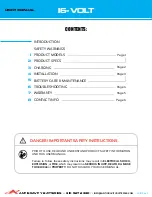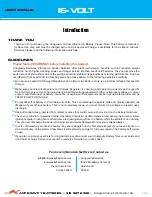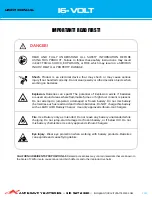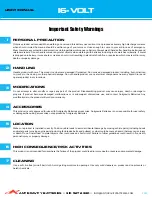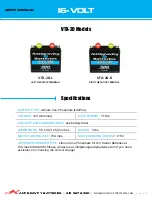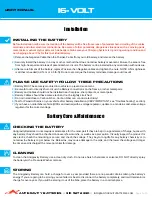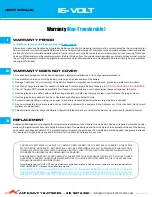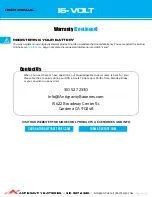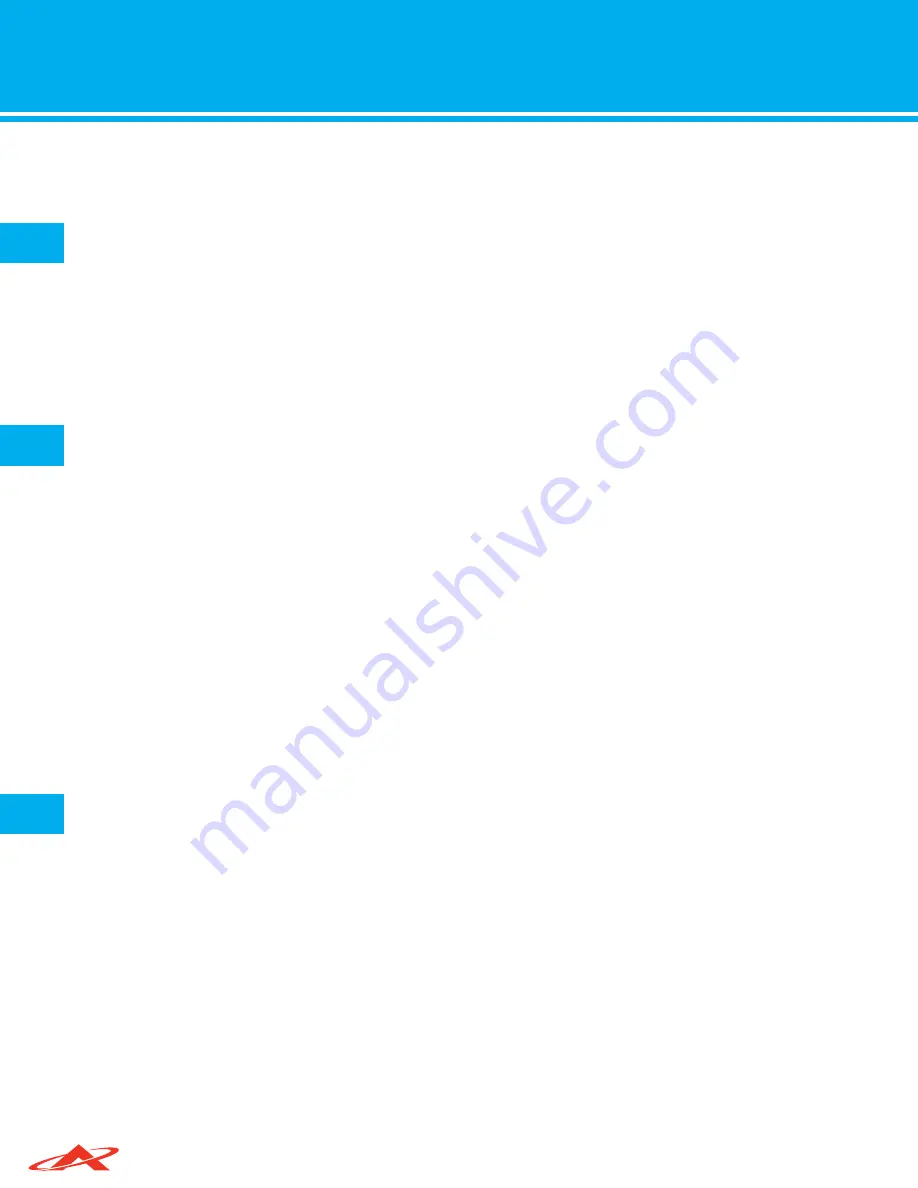
16-VOLT
ANTIGRAVITY BATTERIES
//
310 527 2330
//
INFO@ANTIGRAVITYBATTERIES.COM
Page 4 of 6
USER MANUAL
1
SLUGGISH PERFORMANCE ON INITIAL START IN VERY COLD WEATHER
This is a normal effect of Lithium-Ion due to increased “resistance” in very cold weather. The battery is not damaged.
A Lithium battery can be self warmed by either a couple quick engagements of the starter, such as a short blip on the
starter button, or a short turn of the key to engage the starter for a second only, or by leaving the vehicle lights on for
1-3 minutes. This gets current to flow from the battery and it will self-warm and have more power available for starting
in low temperatures. Once warmed, the battery’s full power is available. For freezing weather, we recommend a battery
warmer.
Do not try to charge, or jump-start any frozen battery.
2
BATTERY LOSING VOLTAGE WHILE IN VEHICLE
(
PARASITIC DRAIN
)
A Parasitic Drain is a condition where the battery’s energy is used up by the electronics, or accessories on the vehicle.
For example, when the vehicle is not being driven enough to recharge the battery items like accessories, then instrument
panels, cooling fans and ignition modules will continue to draw the energy from the battery even with the key off. Even a
shorted wire on the vehicle can cause this condition. If the battery is drained below 14v, it can damage your 16v battery.
This is why it is important to check your voltage after racing or before storing the vehicle. We suggest a Lithium-Battery
Maintainer, or best is to disconnect the the Antigravity Battery from the vehicle if you will not be riding/driving enough
to keep the battery charged up. It will hold a charge for up to a year and a half when not connected.
A mistake such as leaving the ignition “on”, or not disconnecting the battery before storing it can drain your battery
and damage it. Most vehicles do have a mild parasitic drain that will not pose a problem in the short term, but adding
accessories is usually where excessive parasitic drains occur. Be sure to keep the battery charged or drive enough to
keep the battery in a fully charged state to get the longest life from your battery. You battery has a limited supply of
energy to give before being over-discharged. Over-Discharge is not the fault of the battery.
We understand many Race Cars use Total Loss systems, a system where there is no alternator to recharge the Battery.
It is imperative to make sure you keep the battery fully charged as often as possible to get the best results. We do not
warranty for Over-Discharged issues. This is not a fault of the battery, it is a required maintenance for the Battery.
3
GETTING THE LONGEST LIFE OUT OF YOUR ANTIGRAVITY BATTERY
You can expect many years of performance out of your Antigravity Battery. But there are things that will damage your
battery and cut its life-cycle down severly or ruin it quickly. The following are the main reason a lithium-battery will be
damaged or have a short life-cycle. This is not a faulty or defective battery, this is due to lack of maintenance. Please
maintain your battery correctly.
Over-Discharging the battery below 14-Volts:
If you are not driving enough to recharge the battery the vehicle’s
electronics will be taking energy from the battery and discharging it. Maybe you left the lights or ignition on accidently.
These circumstances will allow the battery to drain below 14 volts and shorten, or ruin the life of the battery. You
MUST make sure you are keeping the battery charged, or putting the battery on a Charger/Maintainer when leaving
it connected to the vehicle’s electronics. Or just disconnect the battery and it will not lose its voltage for over a year.
Over-Charging the battery:
Using the incorrect charger that is charging above the Maximum Charge Voltage of 17.5
Volts. This will damage the battery rapidly and could cause fire or explosion. So you MUST make sure you are using
the proper charger. And also that if your vehicle has a charging system for 16v Batteries, that it is regulated to not
exceed the maximum charge voltage.
Troubleshooting
1)
2)


